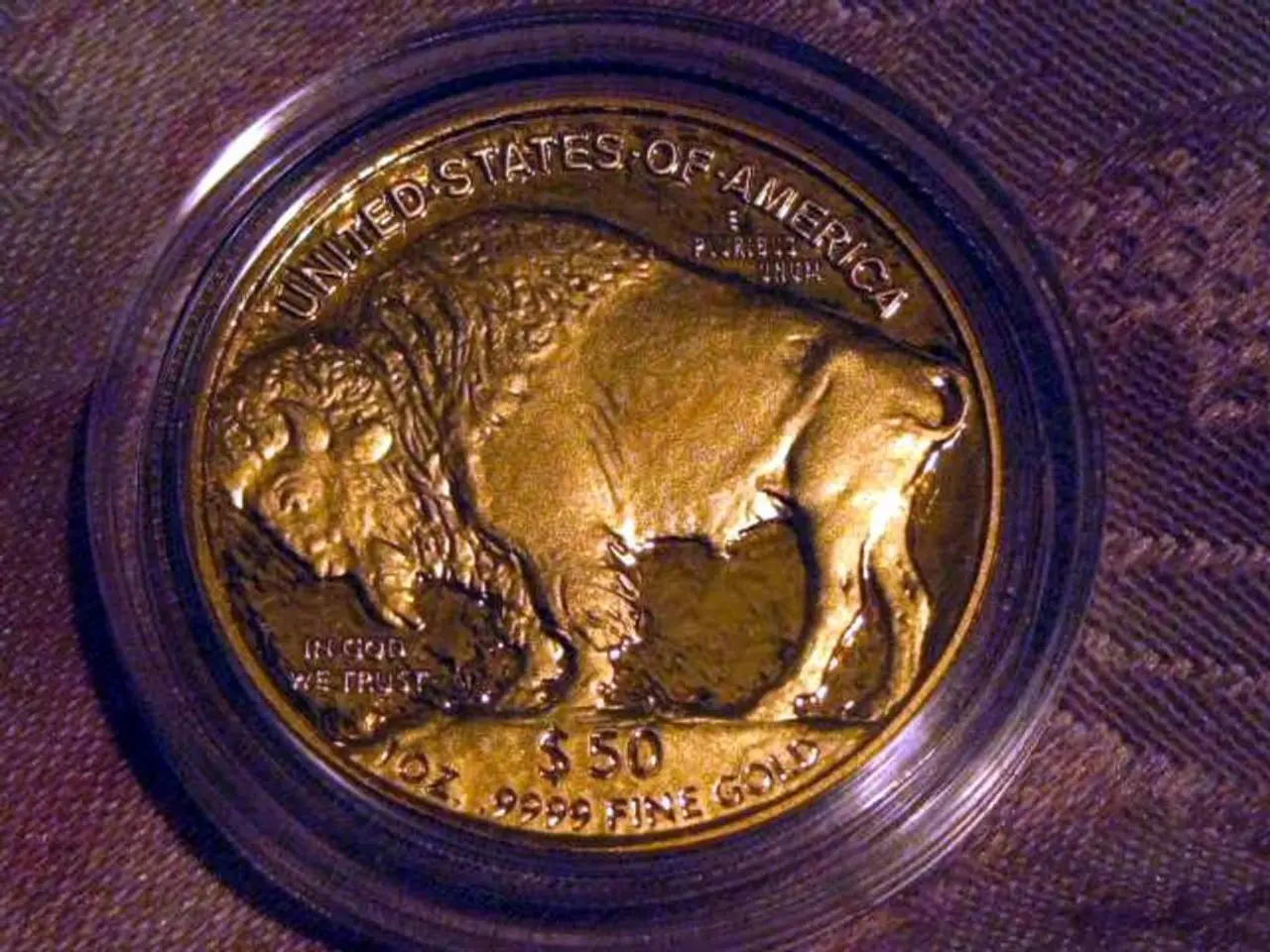Interview on US Treasury Market Volatility
Navigating the US Financial Turmoil: Overcoming Deficits, Debts, and Dollar Challenges
Monika Carlson: The US bond market's been rocky lately. Investors are fretting over tariffs, the US fiscal deficit, and even the potential loss of the safe haven status for the greenback and US Treasuries. It's a lot to sort through.
First off, tariffs are inflationary bastards, especially in the short term. Then, the One Big Beautiful Bill Act is expected to jack up the fiscal deficit by anywhere from $1.5 to $3 trillion over the next decade thanks to hefty tax cuts that overshadow potential savings.
With more Treasury supply and investors staying worried about America's financial health, we could witness a rise in the term premium on Treasury yields as investors demand a higher payout for taking on additional risk.
So, what's your prediction for the Treasury market?
Fahd Malik: Politicians gonna be politicians, so you gotta learn to separate the bullsh*t from the action.
For starters, we know tariffs will cause some inflationary chaos in the near term, but the long-term impact won't be as dramatic. If you're an investor with a horizon of 1 to 3 years, you should overlook the volatility resulting from tariffs.
On fiscal, while the debt issue matters, it's unclear if it'll cause trouble for the Treasury market, especially since the dollar is the world's reserve currency. Our analysis shows an insignificant relationship between debt levels and Treasury yields across the planet.
Monika Carlson: The US Treasuries remain one of the most liquid and reliable investments globally. Other markets just can't stack up against them, neither in terms of size nor liquidity. Even if foreign investors step back a bit, Treasuries will still hold a prominent place in global asset allocation. We've noticed that recently, with auction subscriptions staying strong—a sign of ongoing demand for the sector.
Fahd Malik: Indeed. And Treasury Secretary Scott Bessent's dedicated to keeping yields in check. Plus, if a growth slowdown hits later in the year, we reckon the Fed can slash rates more than the market anticipates, and that'll benefit the Treasury market.
Monika Carlson: Now, the expanding deficit puts pressure on the almighty dollar. What's your take on that situation?
Fahd Malik: The greenback retains its reserve currency status, despite its devilish ways—simply because there's no viable alternative.
Monika Carlson: And where do you think Treasury yields are headed then?
Fahd Malik: We anticipate near-term turbulence, but in the long run, yields should follow their fundamentals— where we think inflation's headed, and where we think real rates will end up.
At the moment, those factors suggest 10-year Treasury yields around 4%, which is lower than their current levels.
Monika Carlson: Lastly, any advice for investors managing their Treasury allocations?
Fahd Malik: Stay calm and ride the volatility. Use it to wring profits. If you copped Treasuries when yields soared, and sold 'em when yields dived in the past few years, you're in the green. Pick the right duration, and you could strike gold: Intermediate Treasury sales offer protection from fiscal noise, while also offering potential gains if the Fed cuts rates.
Monika Carlson: All this underlines that Treasuries play a crucial role in asset allocation, providing a valuable buffer during periods of market turmoil.
These opinions don't represent research, investment advice, or trade recommendations, and aren't shared by all portfolio management teams at AB. They are subject to change over time.
- Considering the current climate, it's crucial for investors to consider the impact of government investments, specifically the increasing fiscal deficit, on the US Treasury market.
- The government's finance decisions, such as the potential rise in the fiscal deficit, might not have a significant impact on Treasury yields, given the US dollar's status as the world's reserve currency.
- Investors could potentially benefit from intermediate Treasury sales, as they offer protection from fiscal noise and the potential for gains if the Federal Reserve cuts rates, especially in the long run.




